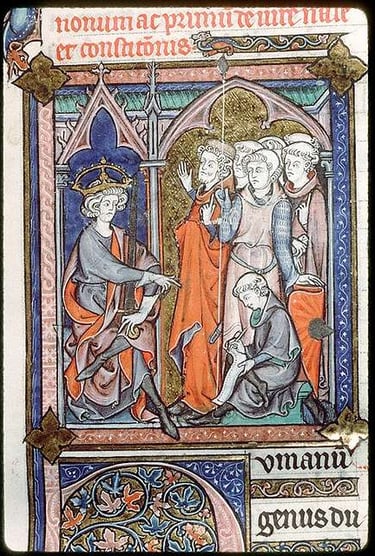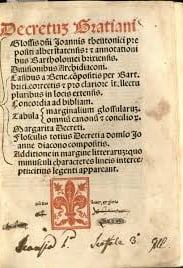Canon Law and Gratian's Decree
Gratian's Decree, compiled around 1140 by the Benedictine monk Gratian, meticulously organized and analyzed 3,800 canonical texts, bringing unprecedented systematization to Canon Law. This monumental work became Europe's foundational canonistic collection, profoundly influencing subsequent ecclesiastical legal development. Its lasting significance lies in articulating a hierarchy of divine, natural, and positive law, a concept that fundamentally shaped modern legal philosophy and democratic institutions by establishing that even sovereign power is subject to higher moral and legal principles, thereby laying the groundwork for limited government and protected rights.
While often perceived as purely religious, Canon Law significantly impacted secular legal development, interacting dynamically with Roman Law in 11th and 12th-century Europe. In this era of legal competition and intellectual growth, Gratian, a Benedictine monk from Bologna, completed a remarkable feat around 1140. His work, the Decretum Gratiani, meticulously compiled approximately 3,800 canonical texts—including papal decrees and conciliar canons. Crucially, Gratian not only organized these disparate sources but also provided incisive analysis of evolving doctrines, deliberately highlighting their inconsistencies. This monumental effort brought unprecedented systematization and coherence to centuries of ecclesiastical legal thought.
The Decretum Gratiani swiftly became Europe's fundamental canonistic collection, serving as the authoritative framework for both Church legal education and judicial practice across the continent. Its enduring influence, as noted by legal scholar William W. Bassett, was so profound that all subsequent developments in canon law depended upon it. Beyond its direct ecclesiastical impact, the Decree's major significance lay in its clear articulation of a hierarchy among sources of law: divine, natural, and positive (man-made) law. This conceptual framework, which placed inherent moral and higher legal principles above human-enacted laws, became a foundational concept. It profoundly shaped modern legal philosophy and the evolution of democratic institutions by embedding the crucial notion that even sovereign authority is subject to a superior moral and legal order, thereby providing a theoretical basis for limiting governmental power and safeguarding fundamental rights.




